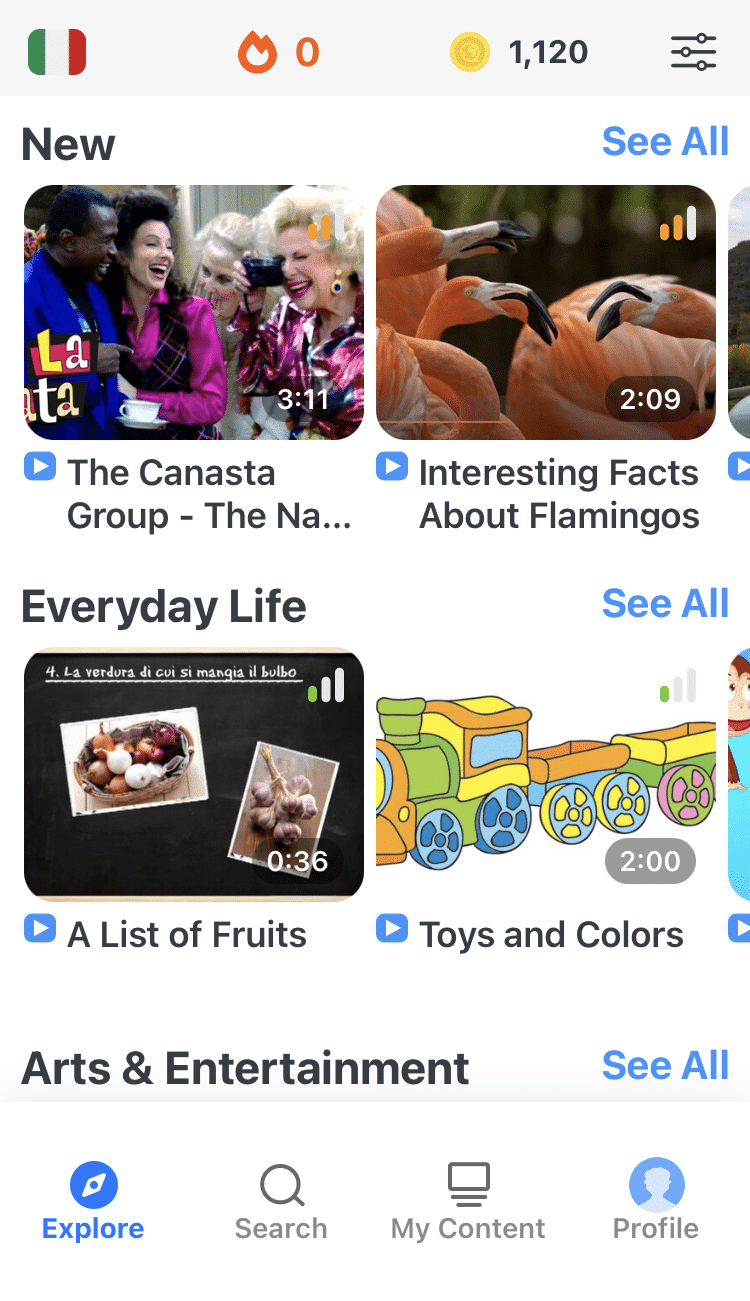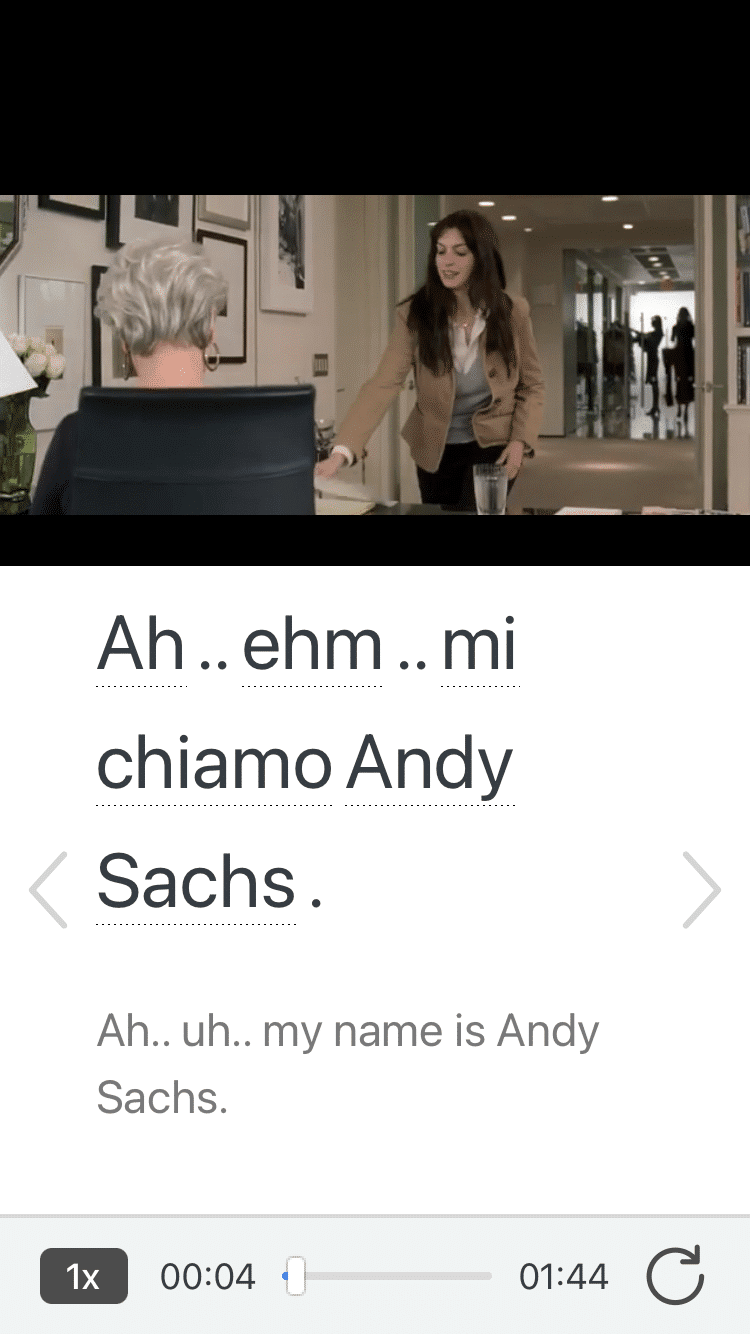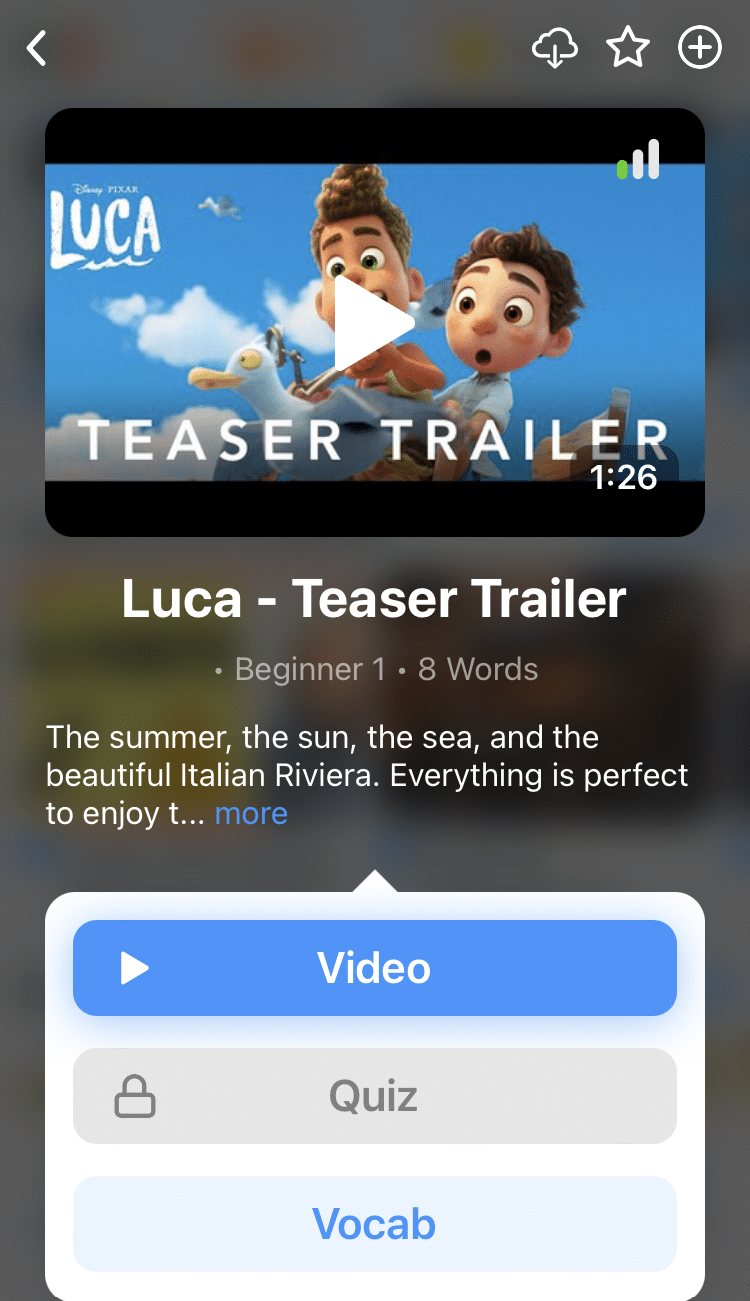
Informal Italian: How and When to Use It
Italians are well known for their casual and informal approach to language, but as an Italian learner, it may be more difficult to know when and how to use informal Italian speech.
Knowing which situations allow for informal speech and how to use it is crucial to navigating Italian conversations. It’s an important part of everyday speaking and etiquette.
This might sound tricky, but don’t worry: This post will be your guide to figuring out the essentials of informal Italian, which, thankfully for you, is pretty straightforward in Italian.
Contents
- Just What Is Informal Italian?
- The Grammar of Informal Italian
- The Informal Imperative
- Italian Informal Slang
- Informal Italian Pronunciation
- Informal Italian: How and When to Use It
- And One More Thing...
Download: This blog post is available as a convenient and portable PDF that you can take anywhere. Click here to get a copy. (Download)
Just What Is Informal Italian?

Informal language is the way people speak in very casual conversations—with friends, immediate family members, peers and anyone else you feel very close to.
It’s not the kind of language you use to speak to someone in a position of authority or respect like a boss, an older person or a police officer.
Informal speech in Italian is made by changing the grammatical structure of sentences—with different verb conjugation and pronoun use.
The Grammar of Informal Italian

As we discussed earlier, informal Italian revolves around grammar. Speaking Italian informally almost entirely comes down to the choices you make with your words, based around a certain set of grammatical rules.
Mastering conjugations
The big key to informal Italian is mastering the pronoun tu (you).
There are two different ways to say the singular “you” in Italian: tu and Lei, with the former being informal and the latter being the formal Italian “you.”
Other pronouns such as voi (you all) and io (I) can be used in either formal or informal situations, with some particular exceptions like egli (he) being formal.
A good set of verb conjugation tables is crucial for this purpose. Keep in mind that some verbs are irregular and don’t follow the rules. You can check the conjugation of any specific verb at the incredibly useful Italian Verbs website.
Being informal
Making a conversation casual can often revolve around simply conjugating your verbs properly to suit the use of tu. For example, for the sentence “You have a job.”
Formal: Lei ha un lavoro.
Informal: Tu hai un lavoro. or
Hai un lavoro.
Here’s another example, using the phrase “How are you?”
Formal: Come sta Lei?
Informal: Come stai?
A small difference in writing, but a big one in manners.
This specific example uses a common term, but the key difference is in how the verb stare (to be / to stay) is conjugated. Just knowing how to change one little syllable can make you seem polite (or casual) in an Italian conversation.
To take one more example, check out these two different ways of greeting someone:
Formal: Salve, piacere di conoscerla.
Informal: Ciao, piacere di conoscerti.
Both of these mean “Hello, pleased to meet you.” The key difference is in the greeting (“salve” is polite while “ciao” is very casual) and the conjugation of conoscere (to know someone).
If you want to know how to speak informally, figuring out just how tu works in any situation is the way to go.
Make sure to pay close attention to how it’s conjugated when reviewing your verbs, and take note of when it’s used in immersive material like dialogues and Italian media.
The Informal Imperative

Informal language doesn’t just come down to knowing how to use tu, though. You can also use the imperative informally.
Issuing commands
The imperative form is typically used for direct orders and requests, as well as in some other situations such as when asking questions.
The imperative tense is usually only used in reference to second-person pronouns like tu and voi. This is because this form tells another person to do something directly.
The conjugation of these words naturally varies, so it’s important to know your way around conjugating Italian verbs when figuring out the imperative tense. You can learn how to conjugate the imperative form at ThoughtCo.
Here are some examples:
Mangia! Eat!
Senti! — Listen!
The negative imperative is typically used when you’re telling someone not to do something. These can usually just be formed with an non and an infinitive, like this:
Non correre! — Don’t run!
Non parlare! — Don’t speak!
When the verb is reflexive, the pronoun is added in on the end. Take a look:
Lavati! — Wash up!
Fermati! — Stop that!
If you’re trying to specify who or what a negative imperative is referring to, you’ll also add the pronouns onto the end, this time for an infinitive:
Non toccarlo! — Don’t touch it!
Non darmelo! — Don’t give it to me!
Informal imperatives are often a little fragmented, said like an interjection. This isn’t exclusive, however, and they can be found in fuller sentences:
Mangia la cena adesso! — Eat your dinner now!
Lavati prima di uscire! — Wash up before leaving!
Italian Informal Slang

Another big aspect of informal language is slang, and Italians love slang. Here are some informal Italian slang key terms:
- Che figata! — How cool!
- Magari! — I wish!
- Mamma mia! — Wow!
- Boh — I don’t know
- Dai! — Come on!
- Pigiato — Drunk
- Figo, Figa — Cool, attractive
- Piantala! — Cut it out!
- Sei uno spasso! — You’re hilarious!
- Scialla — Take it easy
- Che palle! — How boring!
- Sfigato, sfigata — Loser
- Che casino! — What a mess!
For much more Italian informal slang, check out this post:
30 Italian Slang Words and Phrases | FluentU Italian Blog
These 30 Italian slang words and phrases will help you speak Italian more naturally, so you can sound like a local! We’ve also included audio, so you can practice your…
Informal Italian Pronunciation

Informal pronunciation in Italian encompasses various features that distinguish casual speech from formal language.
One notable aspect is the assimilation (making different sounds the same) or elision (leaving out) of certain sounds, contributing to a relaxed and colloquial atmosphere. This can involve dropping unstressed vowels or merging them with adjacent sounds, altering the pronunciation of words.
Additionally, informal speech may exhibit a more fluid and connected rhythm, with a tendency to blend words together. Consonant sounds might be softened, and there may be a greater tolerance for slurring or rapid articulation.
These aspects of informal pronunciation not only reflect a sense of informality but also enhance the natural flow of conversation.
Informal Italian: How and When to Use It

When to Use Informal Language
Knowing when to use informal Italian is important. Your choice in the matter is directly related to having good manners. Using it in the wrong situation could make you seem downright rude, and that’s something no language learner wants.
Using formal Italian
Formal Italian is best for, well, formal occasions like meeting an important figure or speaking to someone you don’t know. It’s also used in professional settings, like business meetings or when talking to someone higher on the social hierarchy than you.
Speaking with formal Italian is a show of respect so it’s a good idea to use it anytime you want to seem courteous. Feel free to use it anytime you want to seem well-mannered.
Using informal Italian
Informal Italian, on the other hand, is for when you want to be casual.
It’s typically best used around family and close friends, but it can also be used on social “subordinates” like young children or people below you on the corporate ladder.
It’s important to be mindful of which form you use and when, because it can make a big difference in your etiquette.
How to choose your level of formality
It can be tough to figure out which type of language to use, and a little unnerving when you consider the social importance of it. Here are a few tips for figuring out formality level:
- Follow your conversation partner’s example. If they speak informally with you (and they’re not in some position of power over you), you can probably do the same without an issue.
- When in doubt, default to formal. It’s ultimately the safe move. Being formal around close friends is a little weird, but being overly casual in a formal setting can be a big social faux-pas.
- Listen to authentic speech. As they say, practice makes perfect! The more authentic conversations you hear, the better you’ll get at judging when it’s okay to be informal and when it’s better to button up and dial up the formality.
To dive deeper into informal Italian, check out this video:
Informal Italian can often come down to just knowing how to wrangle a verb and conjugate the pronoun tu. Don’t be so formal all the time!
Download: This blog post is available as a convenient and portable PDF that you can take anywhere. Click here to get a copy. (Download)
And One More Thing...
If you're as busy as most of us, you don't always have time for lengthy language lessons. The solution? FluentU!
Learn Italian with funny commericals, documentary excerpts and web series, as you can see here:

FluentU helps you get comfortable with everyday Italian by combining all the benefits of complete immersion and native-level conversations with interactive subtitles. Tap on any word to instantly see an image, in-context definition, example sentences and other videos in which the word is used.

Access a complete interactive transcript of every video under the Dialogue tab, and review words and phrases with convenient audio clips under Vocab.

Once you've watched a video, you can use FluentU's quizzes to actively practice all the vocabulary in that video. Swipe left or right to see more examples of the word you’re on.

FluentU will even keep track of all the Italian words you’re learning, and give you extra practice with difficult words. Plus, it'll tell you exactly when it's time for review. Now that's a 100% personalized experience!
The best part? You can try FluentU for free with a trial.
Start using the FluentU website on your computer or tablet or, better yet, download the FluentU app from the iTunes or Google Play store. Click here to take advantage of our current sale! (Expires at the end of this month.)


